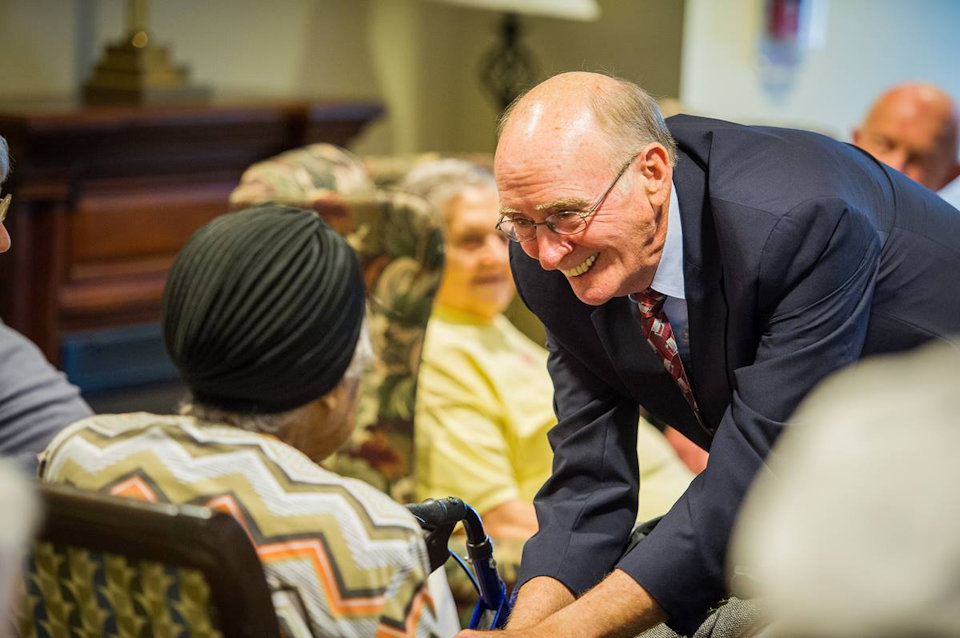Bishop Kenneth L. Carder has written a book about caring for dementia sufferers based on his tenure as a chaplain at a memory care center and personal experience as a caregiver.
Kenneth L. Carder, retired bishop of The United Methodist Church, has written a new book on the deep personal and theological questions created by loving people with dementia diseases. The book, Ministry with the Forgotten: Dementia Through a Spiritual Lens, is available from Abingdon Press.
In the book, Carder draws on his own experience as a caregiver, volunteer chaplain at a memory care center, and pastoral practitioner to portray the gifts as well as the challenges accompanying dementia diseases. The bishop is currently a senior visiting professor at Lutheran Theological Southern Seminary Columbia, S.C.
Carder’s wife of 58 years, Linda, was a Bethany resident until her death on October 3. He lived across the street in the retirement home they shared until her move to memory care on May 7, 2015.
While acknowledging the devastation of dementia diseases, Carder explores how dementia diseases represent a crisis of faith for many family members and congregations. Magnifying this crisis is the way people with dementia tend to be objectified by both medical and religious communities, he writes. They become recipients of treatment and projects for mission, with ministry done to and for them rather than with them.
In the book, Carder demonstrates how living with dementia can be a means of growing in faith, wholeness, and ministry for the entire community of faith. He also shows how authentic faith transcends intellectual beliefs, verbal affirmations, and prescribed practices. Carder asserts that the Judeo-Christian tradition offers a broader lens, defining personhood in relationship to God’s story and humanity’s participation in God’s mighty acts of creation and new creation; thereby contributing to hope, community, and self-worth.
The book is intended to help pastors, congregations, and individuals be better equipped to relate with people affected by dementia, receiving their gifts and responding to their unique needs. They will learn how people with dementia contribute to the community and the church’s life and mission, discovering practical ways those contributions can be identified, nurtured, and incorporated into the church’s life and ministry.
See a review of the book in Publishers Weekly.
Last Updated on November 9, 2023

